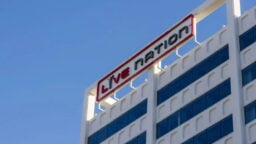Marc Geiger wants to save live music in America.
The veteran ex-WME agent told the New York Times a couple of weeks ago that he’s raised a $75 million “war chest” to offer a “bailout solution” for US music venues struggling due to the pandemic.
That “bailout solution” comes with a catch, according to the report: it would see Geiger acquire at least 51% of his venue partners’ businesses.
With no end date in sight for live’s shutdown, news of Geiger’s so-called “SaveLive” scheme comes as independent music venues across the country grow increasingly desperate for cash to survive.
The National Independent Venue Association (NIVA), which formed at the start of the pandemic, claims that 90% of its 2,900 members face permanent closure without government help.
Amongst NIVA’s suggested solutions are the passage of US legislation including the RESTART Act (S. 3814), and the Save Our Stages Act (S. 4258), which if approved, would provide assistance for venues in the form of flexible loans and grants, respectively.
In the meantime, NIVA has launched its own Emergency Relief Fund to raise money for the most cash-strapped of live music clubs, while another new organization, the Live Music Society, has committed $2m worth of grants for venues over the next two years.
Over in the UK, an alternate narrative is playing out.
The British government has just announced the latest round of its £1.57 billion ($2bn) Culture Recovery Fund, with this new tranche of aid totalling £18 million ($23.8m) to be shared by eight arts and cultural organizations around the country.
Amongst the new recipients are legendary venue Ronnie Scott’s Jazz Club in London, which is getting £1.27m ($1.7m), and the London Venue Group, which will receive £2.35m ($3.1m) to maintain its venues, including Omeara, The Social and Lafayette, during closure.
The Academy Music Group, meanwhile, will get £2.98m ($3.9m) to help meet the core operating costs of its 20 live music venues across the country, including O2 Academy venues in London, Leeds and Liverpool.
Previous rounds of the UK Culture Recovery Fund have seen money earmarked for Liverpool’s Cavern Club, which will receive £525,000 ($680,000) and the London Symphony Orchestra, which will receive £846,000 ($1.1m) to help “begin a phased return to full-scale performance”.
More than 2,500 cultural organizations in the UK will be receiving state funding from the $2bn commitment, following heavy government lobbying from the likes of the UK’s Music Venue Trust.
Although a lot of struggling venues’ applications for grants were unsuccessful (as highlighted by Music Venue Trust today), and questionable oddities like Paradigm Music Group, Resident Advisor or Secret Cinema have been named as multiple-figure beneficiaries, the funding will ensure that a large number of the UK’s live music venues will be able to operate post-pandemic.

The news of this funding makes interesting reading for US venues, who continue to lobby congress for federal help and who may be tempted to consider resorting to Marc Geiger’s 51%-plus equity acquisition (aka “bailout solution”).
“The hope here,” Geiger told the New York Times, “is to create a network effect. To be a long-term backer, helper, grower of these businesses, and enjoy the wins.”
The NYT’s article notes Geiger’s insistence that his deals with venues “would be partnerships”, and that he wouldn’t be looking to “flip assets” despite chasing those 51% majority stakes.
In that same article, High Road Touring’s Frank Riley stated that “Geiger’s solution on some level scares me.”
He added: “He is going to buy distressed properties for money on the dollar and end up owning 51% of their business. Is that independent? I don’t know.”
Live Nation President and CEO Michael Rapino isn’t convinced. He suggested last week that Geiger’s thesis is “broken”.
Speaking with investors on Live Nation’s Q3 earnings call (the company has been hit by $7bn in lost revenues this year due to COVID), Rapino slammed the suggestion that iconic venues would be willing to sell majority stakes at a discount.
Said Rapino: “The thesis out there with Mark Geiger and some others is that these independent venues are so distressed that they’re going to throw someone the keys at a very cheap price and you can maybe roll up some of these cheaply and have some scale.
He added: “Well, the thesis is basically broken. Any great live club is not throwing anybody in the keys cheaply. There’s a lot of capital out there. If you are the Troubadour in Los Angeles, it’s a legendary business and you’re having a tough year, you’re not selling to Mark Geiger or anyone else.
“[There are] lots of ways you can keep your business afloat, while you get through the storm.”Music Business Worldwide





